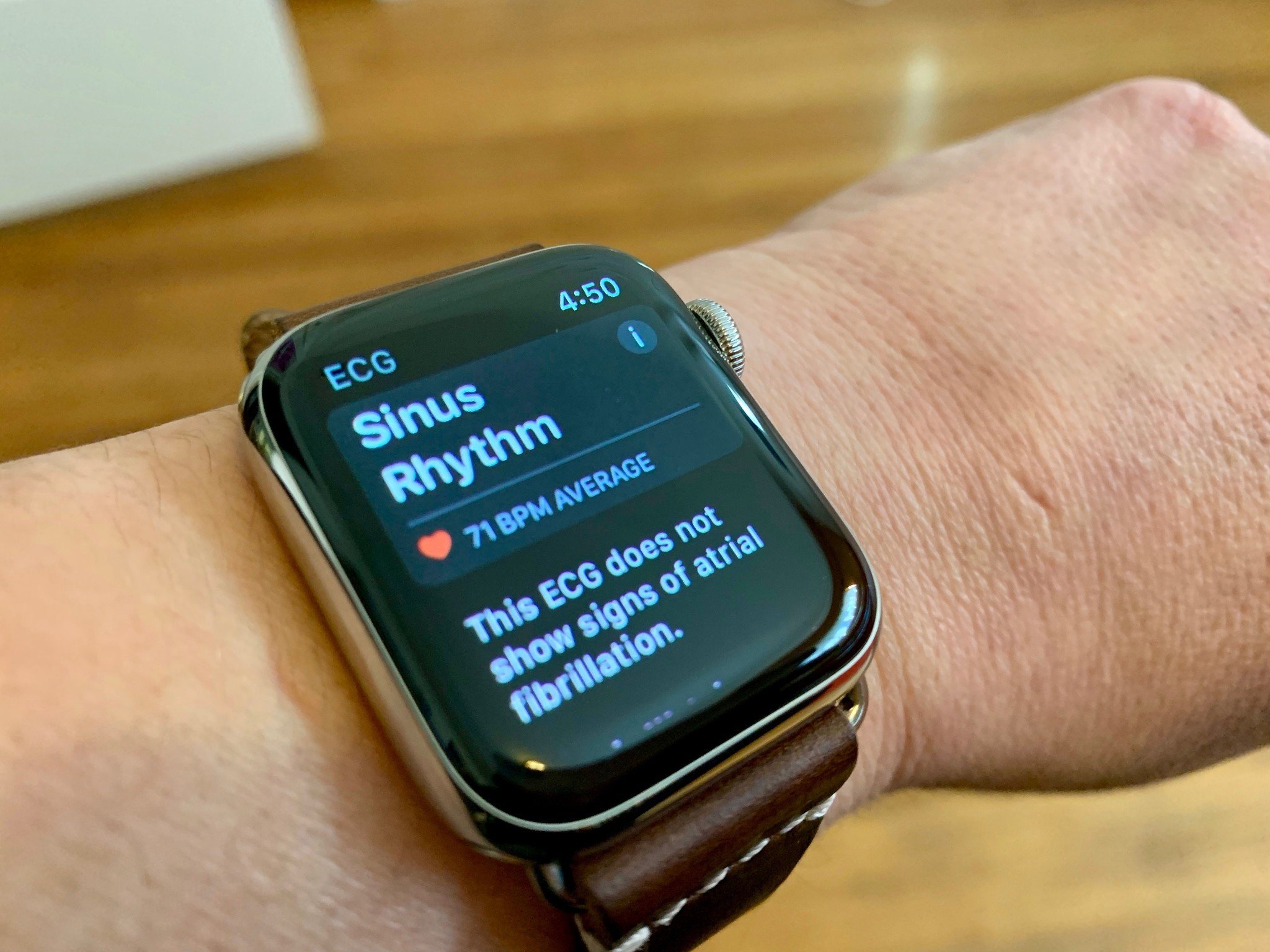Apple explains how health became key to Apple Watch success

What you need to know
- Apple Watch continues to save lives.
- But Apple didn't always intend for it to focus on health.
- Health benefits came as a surprise.
The very first Apple Watch launched in 2015 and while it could measure your heart rate, health wasn't a major focus. Fast forward to the Apple Watch Series 5 announcement earlier this month and things were very different. Health is absolutely an Apple Watch focus in 2019. So much so that you might think that was the plan all along.
And you'd be wrong.
Speaking with The Independent, Apple execs Jeff Williams, Sumbul Desai, and Kevin Lynch lifted the lid on Apple Watch, its goals, and how it became such a force to be reckoned with in the health world.
The most interesting tidbit is the fact that Apple didn't intend for health to be the Apple Watch's focus, Instead, chief operating officer Jeff Williams noted that the whole thing was almost accidental.
It was very organic. Most people think we had this major health initiative, well, we had some notions in the beginning but no idea where it would lead. And honestly, it's a situation where we started pulling on threads and the more we pulled, the more we realised there's such a huge opportunity for us to impact people with the information that's on their wrist.
It wasn't really until people started to write to Apple, telling it of the health benefits of Apple Watch, that things started to click in Cupertino.
The first letter that we got about it saving somebody's life with just the heart rate monitor, we were surprised, because anybody can go watch the clock and get their heart rate. But then we started getting more and more and we realised we had a huge chance and maybe even an obligation to do more. That led us down the path to do everything including medically regulated apps.
Nowadays Apple Watch can be the center of a healthy lifestyle and we often hear stories of people having their lives saved by early warnings offered by the wearable.
But Kevin Lynch, Apple VP of technology, says that the company isn't finished yet.
iMore offers spot-on advice and guidance from our team of experts, with decades of Apple device experience to lean on. Learn more with iMore!
There's already a tremendous amount we can learn from the current hardware. Heart studies are a good example. With the existing monitor in the Watch, we were able to get AFib readings from that. There's already so much that we can work on. It's really a matter of choosing our focus areas and asking really great questions that then lead to insightful answers. That's the journey we're on.The latest studies around hearing health, for example, women's health, more heart studies, we think we can learn a ton from those areas with all the existing technology that we have, using them in this focused way. That may lead to inventing some other new things, but even with the current stuff, we're at the beginning right now. There's so much to learn. There are so many areas that we could focus on. And so that's strategically the most important thing for us: asking where can we make a meaningful contribution?
The full article is definitely worth a read over at The Independent. It's a long one, but you won't regret it.

Oliver Haslam has written about Apple and the wider technology business for more than a decade with bylines on How-To Geek, PC Mag, iDownloadBlog, and many more. He has also been published in print for Macworld, including cover stories. At iMore, Oliver is involved in daily news coverage and, not being short of opinions, has been known to 'explain' those thoughts in more detail, too.
Having grown up using PCs and spending far too much money on graphics card and flashy RAM, Oliver switched to the Mac with a G5 iMac and hasn't looked back. Since then he's seen the growth of the smartphone world, backed by iPhone, and new product categories come and go. Current expertise includes iOS, macOS, streaming services, and pretty much anything that has a battery or plugs into a wall. Oliver also covers mobile gaming for iMore, with Apple Arcade a particular focus. He's been gaming since the Atari 2600 days and still struggles to comprehend the fact he can play console quality titles on his pocket computer.
